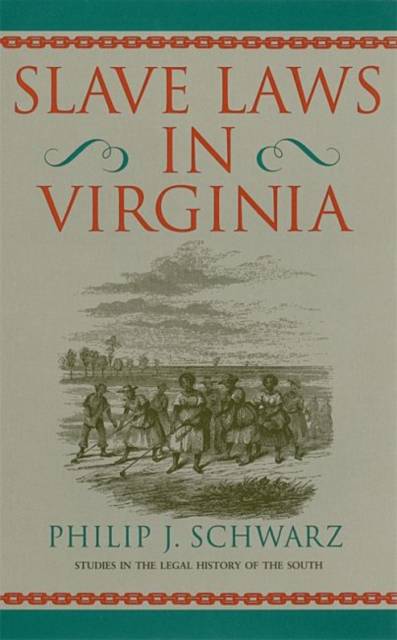
- Retrait gratuit dans votre magasin Club
- 7.000.000 titres dans notre catalogue
- Payer en toute sécurité
- Toujours un magasin près de chez vous
- Retrait gratuit dans votre magasin Club
- 7.000.0000 titres dans notre catalogue
- Payer en toute sécurité
- Toujours un magasin près de chez vous
Description
The five essays in Slave Laws in Virginia explore two centuries of the ever-changing relationship between a major slave society and the laws that guided it. The topics covered are diverse, including the African judicial background of African American slaves, Thomas Jefferson's relationship with the laws of slavery, the capital punishment of slaves, nineteenth-century penal transportation of slaves from Virginia as related to the interstate slave trade and the changing market for slaves, and Virginia's experience with its own fugitive slave laws. Through the history of one large extended family of ex-slaves, Philip J. Schwarz's conclusion examines how the law shaped the interaction between former slaves and masters after emancipation.
Instead of relying on a static view of these two centuries, the author focuses on the diverse and changing ways that lawmakers and law enforcers responded to slaves' behavior and to whites' perceptions of and assumptions about that behavior.Spécifications
Parties prenantes
- Auteur(s) :
- Editeur:
Contenu
- Nombre de pages :
- 272
- Langue:
- Anglais
- Collection :
Caractéristiques
- EAN:
- 9780820335162
- Date de parution :
- 15-05-10
- Format:
- Livre broché
- Format numérique:
- Trade paperback (VS)
- Dimensions :
- 140 mm x 216 mm
- Poids :
- 349 g

Les avis
Nous publions uniquement les avis qui respectent les conditions requises. Consultez nos conditions pour les avis.






